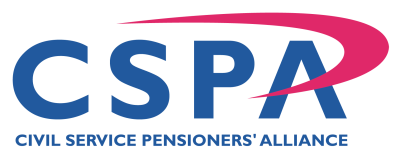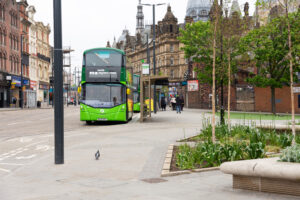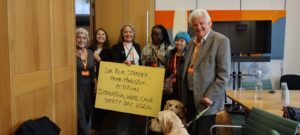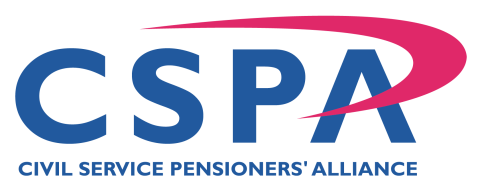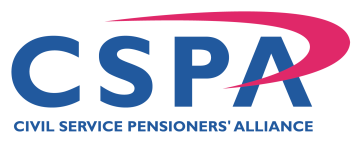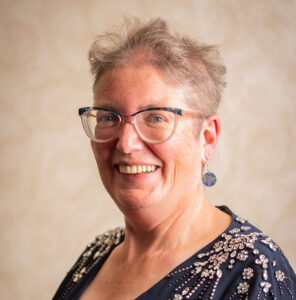
Chris Haswell - CSPA pensions Cases Manager
Christine Haswell looks at the difficulties and sources of help for people going to events.
Rather listen? Simply hit the play button and listen to the article in full
- Getting out and about 00:00
This article was first published in The Pensioner magazine.
W hen you become disabled or you are a companion to someone who has disabilities,
you will notice how exclusive the world is. Physical and/or sensory barriers are everywhere, and can make planning an outing challenging.
A lot of people face this, with one in four having a disability that needs to be accommodated, according to the Office for National Statistics.
This article aims to help you find places to go and feel comfortable. An important
message is to give feedback, both to venues themselves and on the websites mentioned here, to help others. Becoming disabled shouldn’t result in you missing
out. With some planning and support, you should still be able to get out and about.
Catherine Grinyer, consultant and director at Attendable, a business she created to arrange accessible events, says: “Venue accessibility is about far more than just installing a wheelchair ramp; it’s about creating welcoming, inclusive spaces where everyone, regardless of age, mobility or sensory needs, can participate fully and with dignity.”
Accessibility means that, by design, products, environments, services and content can be used and understood by the widest possible audience. Local councils have a duty to make things relatively easy to access – such as making mobility scooters and wheelchairs available at shopping centres. But not all disabilities are visible, so less obvious adaptations may need to be made.
Grinyer adds: “In the UK, the Equality Act requires all venues to make reasonable
adjustments to ensure their premises are accessible to disabled people. But accessibility shouldn’t stop at legal compliance, it should be part of a venue’s ethos and embedded into every aspect of how it operates.”
So how do you know if somewhere is suitable? Have you ever made plans to go to the cinema or go to a local event and found it isn’t accessible physically – for example, by a wheelchair – or that performances haven’t been adapted for those needing a calm, relaxed setting? Here are some tips on what to look for.

In many modern cinema chains, wheelchair users have designated spaces and companions can sit nearby. Audio description is available and subtitles are provided for the hearing impaired. Assistance dogs are welcome.
The cinemas generally also offer sensory-friendly screenings for neurodiverse audiences. Some of these are specifically dementia friendly.
A CEA Card is generally accepted to ensure disabled guests receive necessary adjustments. The card, developed by the UK Cinema Association, aims to ensure
that people with disabilities and their companions can get all the help possible
Cinemas – a free seat for the person assisting, for example.
If this might help you or someone you know, contact them for eligibility and details:
• Telephone: 01244 526 016
• Textphone: 18001 01244 526 016
• Email: info@ceacard.co.uk
• Website: www.ceacard.co.uk

Depending on where you live, theatres can be harder to access as they are generally older buildings that are more difficult to adapt. But once again, there is a card available that opens the door to special help.
London West End theatres have an Access scheme offering discounted tickets and special seating for disabled people and their companions, ensuring a comfortable theatre experience.
To book Access tickets, customers should register on the theatre’s website or call the box office – but ensure you have proof of disability ready to speed up the booking process.
London theatres also offer wheelchair spaces, assistance for dogs and sign
language interpretation.
Outside the capital, theatres may have bespoke schemes or use a ticket outlet.
Despite theatres putting in place ‘accommodations’, a 2021 report on theatre access by VocalEyes states: “The onus should not be on disabled people. If we are to live up to the values enshrined in the Equality Act, it should be the urgent collective duty of everyone working in the arts and creative industries to take ownership of embedding and enforcing the social justice that it represents.”
It adds: “[Theatre organisations’] duty is ‘anticipatory’: they cannot wait until a disabled person wants to use the service but must think in advance, and on an ongoing basis, about what disabled people with a range of access requirements might need.
“However, frequently it still falls to disabled people and their organisations to proactively ensure that access is available, identify gaps and problems, and suggest solutions to these, in order to experience theatre.”
Performances made accessible are often only for a small number of shows in a long run, which limits attendance.
Here are some theatres that the website AccessAble says have good accessibility:
• Unicorn Theatre, London
• Barbican Theatre, London
• Birmingham Hippodrome
• Bristol Hippodrome
• The Lyceum Theatre, London
• Mayflower, Southampton
• Royal Exchange Theatre, Manchester
The website has produced a detailed accessibility guide for more than 250 theatres at www.accessable.co.uk.
Where to get support
The AccessAble website
www.accessable.co.uk – covers the UK; search by postcode and the nature of the place you want to go. The results have been checked by trained surveyors and the user community. The site has symbols representing different needs, which can be
used as a search feature. You can set up an account to make things easier. It is very comprehensive.
Euan’s Guide
www.euansguide.com – is a small charity working to make it easier, safer and more rewarding for disabled people, their friends, families and carers to find and visit accessible places. The website is easy to use but it relies on user reviews, which can be hit and miss. There are many ways to get involved by submitting reviews of places and getting involved in Euan’s access survey.
The Sociability app
www.sociability.app – has a mission to change the way the world thinks about accessibility to make it more sociable for all. It has maps and information about venues, and also relies on user reviews. However, the emphasis is on its role as a social group, with days to go out and review places together.
Help around the UK
Some sporting facilities and concert venues have card schemes. These cards are mainly free but some charge an annual fee.
• Registering with Nimbus Disability – www.nimbusdisability.com –
allows you to use its Access card across many venues and facilities, not just theatres.
Help around the UK
• A cross-border Irish initiative, the JAM (‘Just a Minute’) card and phone app, indicates discreetly that the holder needs time communicating. The Northern Ireland Tourism Board is among the promoters urging businesses to use the JAM sticker
to show they have had inclusivity training in hidden disabilities. Visit www.jamcard.org or email hello@jamcard.org or call 02890 436400.
• In Scotland, Disability Scotland – www.disabilityscot.org.uk – gives guidance on free transport for people with disabilities. And for theatres, Access Scottish Theatre
– www.accessscottishtheatre.com – gives a summary of venues.
